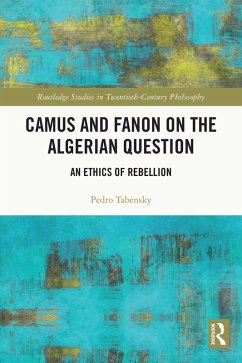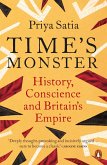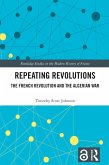The author foregrounds the bloody Algerian War of Independence in his analysis of the philosophies of Camus and Fanon. Although neither supported French colonial occupation of Algeria, they held radically different views of the conflict. Fanon supported emancipation through violence, which the author argues has been uncritically romanticized. Camus, on the other hand, supported an ethics of moderation that shunned indiscriminate violence. The author argues that Camus has been unfairly accused of being an apologist for colonialism. Finally, the author draws out the common endorsement of humanist values that drive both Camus' and Fanon's thought.
Camus and Fanon on the Algerian Question will appeal to scholars and advanced students interested in twentieth-century Continental philosophy, postcolonialism, existentialism, and African philosophy.
Dieser Download kann aus rechtlichen Gründen nur mit Rechnungsadresse in A, B, BG, CY, CZ, D, DK, EW, E, FIN, F, GR, HR, H, IRL, I, LT, L, LR, M, NL, PL, P, R, S, SLO, SK ausgeliefert werden.
Jeff Malpas, Emeritus Distinguished Professor, University of Tasmania, Australia
"This book puts two significant writers, Camus and Fanon, in conversation for the first time. Tabensky moves us beyond superficial or anachronistic depictions to consider the options for social change in the face of entrenched colonial structures. These two would not, and did not, agree on much apart from the necessity of foreign and racial domination to disappear, but considering the two together allows us to see the options for resistance."
Bruce B. Janz, University of Central Florida, USA









